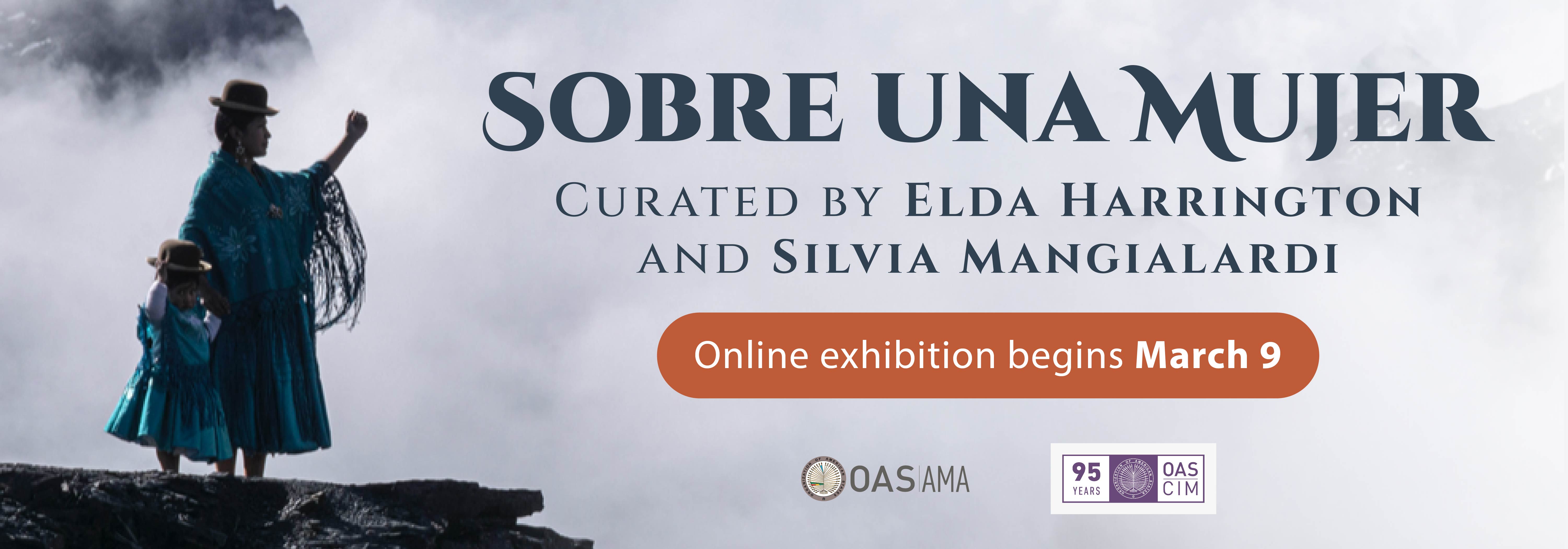
Sobre una mujer
Online exhibition begins March 9
Curated by
Elda Harrington and Silvia Mangialardi
Artists:
Patricia Ackerman (Argentina)
Maia Alcire (Argentina)
Cecilia
Anton (Argentina)
Marina Carniglia (Argentina)
Silvina Caserta
(Argentina)
Veronica Cozzi (Argentina)
Diane Fenster (United
States)
Ana Carolina Fernandes (Brazil)
Alicia D'Amico
(Argentina)
Franco Fafasuli (Argentina)
Claudia Gaudelli
(Argentina)
Paula Gomez Viale (Chile)
Adriana Groisman
(Argentina-United States)
Annemarie Heinrich (Argentina)
Maria
Alejandra Huerta Leighton (Chile)
Julia Lafee
(Chile)
Adriana Lestido (Argentina)
Candelaria Magliano
(Argentina)
Gaby Messina (Argentina)
Haley Morris Cafiero
(United States)
Cirenaica Moreira (Cuba)
Cristian Nicollier
(Argentina)
Pablo Ortiz Monasterio (Mexico)
Lydia Panas (United States)
Cande Rivera (Nicaragua)
Ana Robles
(Argentina)
Cesar Gustavo Ruiz (Argentina)
Karen Schwend (Chile)
Ana Maria Saenz
(Chile)
Annita Pouchard Serra (Argentina)
Viktoria Sorochinski
(Canada-Ukraine)
Sara Wayra Aliaga (Bolivia)
Sobre una mujer, en la mirada
de artistas de las Américas
Sobre las mujeres no es posible
generalizar o extrapolar. Cada individualidad hace que al hablar de
este colectivo, nos refiramos a las historias de un conjunto de ellas,
una por una.
Las mujeres no somos un bloque identitario
compacto y homogéneo.
Existen distintas edades, diferentes
territorios, diversas realidades económicas.
Elegimos, las que tenemos el privilegio de poder hacerlo, distintas
formas de vida. Cada experiencia es singular, y nos provoca
sentimientos, creencias, valores e ideas, que a veces compartimos y
muchas otras no.
Esta muestra no pretende ser una descripción
del género femenino, sino apenas recorrer algunas de sus aristas,
subrayadas en profundidad por los autores.
Uno de los temas
recurrentes es la violencia explícita
o implícita,
social o familiar, transitada en el acoso físico
o moral, en el hartazgo ante la injusticia cotidiana, y en sus luchas
y conquistas.
Las imágenes
permiten reflexionar sobre la dicotomía
entre la ferocidad y la vulnerabilidad, la maternidad, la aparición
de lo maquinal ante lo simultáneo
y vertiginoso de las tareas, los vínculos con
los objetos del espacio doméstico,
los cambios del cuerpo, el aborto.
El recorrido nos interpela
sobre la penetración
social de los mandatos heredados. Estos generan sumisión
y su contracara, la rebeldía,
trayendo la posibilidad de la reconstrucción
de un lenguaje propio como salida.
Sin embargo, hay una, y sólo
una, generalización
que es posible y constatable.
Las mujeres somos la
única
mayoría
que aún
hoy, en pleno siglo XXI, sigue siendo discriminada.
*****
Sobre una mujer (About a Woman), through the
eyes of artists of the Americas
On women, it is not possible
to generalize or extrapolate. Each individuality means that when
talking about this group, we refer to a set of stories, one by one.
Women are not a compact and
homogeneous identity block. There are different ages, different
territories, various economic realities. We choose,
those that we have the privilege of being able to,
different ways of life. Each experience is unique, and stirs
feelings, beliefs, values and ideas within us, which we sometimes
share, and oftentimes do not.
This sample does not seek to be
a representation of women as a gender, but to barely scratch the
surface of its edges, underlined in depth by these artists. Among
the recurring themes, explicit or implicit, are social or family
violence, physical or moral harassment, exhaustion in the face of
everyday injustice, and personal struggles and conquests.
The images allow reflection on
the dichotomy between ferocity and vulnerability, motherhood, the
appearance of machinery before simultaneous vertiginous tasks, links
with the objects of domestic spaces, bodily changes, and abortion.
The route challenges us about
the social penetration of inherited mandates. These generate
submission and, in contrast, rebellion, bringing the possibility of
reconstruction of their own language as an exit route.
However, there is one, and only
one, generalization that is possible and verifiable. Women are the
only majority that even today, in the 21st century, still face great
discrimination.

